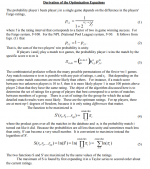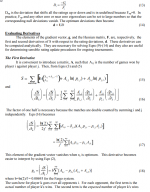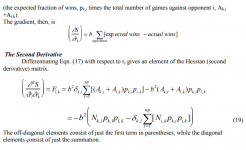For those who wonder how such a thing is possible, since everything in mathematics has a formula....... when you put a big number in the calculator and hit the square root button, there is no formula inside the calculator to get the answer. That's right; there is no formula there either. What happens inside your calculator is something like the blind person taking small uphill steps until the steps are not uphill anymore: then an answer displays. ...
It is not a formula at work that gets you the square root, but it is a well-defined procedure. Square roots are often calculated by something called the Babylonian method which has been used for a few thousand years. A simple example illustrates this method:
Let's find the square root of 2. Guess that it is 1 -- almost any guess will do. Take the guess and 2 divided by the guess and take their average for the second guess:
guess2 = (1 + 2/1)/2 = 3/2 = 1.5 --- much better since we are looking for 1.414+small.
(The reason that this works is that if the guess is too small, then 2/guess will be too large by the same ratio and their average is going to almost split the difference.)
Go from guess2 to guess3 in the same way, taking the average of the guess and 2 divided by the guess:
guess3 = (3/2 + 2/(3/2)/2 = (3/2+4/3)/2 = (9/6 + 8/6)/2 = 17/12 = 1.41666... nice!
One more time:
guess4 = (17/12 + 2/(17/12)/2 = (289+288)/408 = 577/408 = 1.414215+small
which is close to the actual value of 1.414213+small
In this procedure, the number of correct digits doubles each time you turn the crank. Stop turning the crank when you have an answer that is good enough for you.
This is called an iterative method of calculation. In general, if you don't have a formula (or not an easy formula) to find an answer but you can tell how bad a guess is, an iterative method leads you to a better if still somewhat imperfect guess.
In a similar way, a list of Fargo ratings that is not quite right based on all of the recorded match results can be put into The Machine and the crank given a turn and the resulting list of Fargo ratings is better. The clever part of this is to figure out a method like the Babylonians did for square roots that makes a pretty good answer nearly perfect with only a crank or two of the handle. Mathematicians and computer scientists have spent a great deal of time figuring out how to make The Machine as efficient as possible -- FargoRate is not the only problem that the method is applied to.



